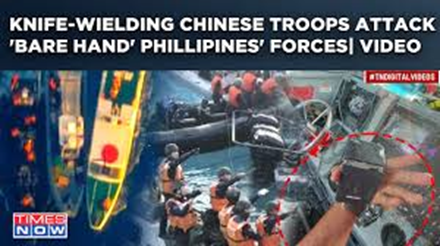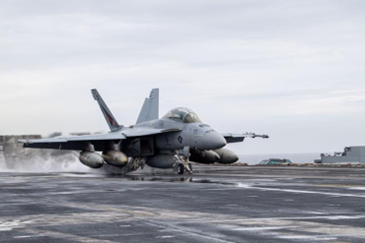Under the leadership of President Xi Jinping, China has resorted to a spate of bad behavior as it pursues its hegemonic ambitions. These bad behaviors include mobilizing pirate-like attacks against countries with whom it has territorial disputes, imposing economic coercion on countries with whom it has political or commercial disagreements, and leading poor nations into debt traps and steering cash-strapped countries into ceding their natural resources for quick cash, among others.[1]
The Chinese Communist Party (CCP) has made it a practice to disregard long-standing international laws whenever they stand in the way of its interest. Similarly, it ignores court decisions handed down by international tribunals. This has resulted in thousands of diplomatic protests, court cases, and economic sanctions slapped on China. But none have deterred it from its rogue ways. The communist nation continues to act like a venal opportunist who bullies and buys its way towards realization of its ambitions.
For every action there is a reaction. A collective opposition has developed among Indo-Pacific nations who oppose China's scalawag behavior.

On June 20, 2024, the Armed Forces of the Philippines (AFP) shared a series of videos showing Chinese coast guard sailors brandishing knives and an axe. The Philippines has accused China's coastguard of piracy in the disputed South China Sea after a violent confrontation. According to the Philippines, their boats were rammed, punctured with knives, and boarded by Chinese personnel in a brutal assault. A Filipino sailor lost a thumb when coastguards rammed and boarded boats "with knives and spears" in the South China Sea. The incident is the latest in a series of increasingly fraught confrontations in the resource-rich and strategically important waterway. View the videohere.
Which Alliances Form The Backbone Of An Indo-Pacific NATO?
Although not official, and likely unintentional, an Indo-Pacific equivalent of NATO is developing. For now, this burgeoning "Indo-Pacific NATO" is composed of bilateral and multilateral alliances that are neither organized nor consolidated. But this can change in a heartbeat. Member countries can very well coalesce, collaborate, and cooperate, not only to deter China but also to blunt the destabilization campaigns of North Korea, Iran, and Russia.
In the middle of these bilateral and multilateral alliances is the United States. The U.S. is the champion of the international rule-based order and provider of arms and financial support to like-minded countries. Having an Indo-Pacific NATO works to America's advantage. Its formation will give the U.S. a solid diplomatic footing from which to exert its influence over the Indo-Pacific. In fact, a group of American legislators have already proposed a bill to Congress to establish a fact-finding mission on the implications of an Indo-Pacific NATO.[2]
Which bilateral and multilateral alliances form the backbone of an Indo-Pacific NATO?
The first is the Quadrilateral Security Dialogue (QUAD) involving the U.S., Japan, India and Australia.
The QUAD was established in 2004 when the four nations engaged in maritime cooperation for disaster relief. It has since evolved to a group focused on maritime defense, specifically to address the Chinese threat. Since 2020, the QUAD has mounted annual naval exercises involving fighter combat missions, maritime interdiction and antisubmarine warfare.
And then there is the AUKU.S. Coalition involving the U.S., the United Kingdom and Australia. AUKU.S. was organized to improve the security and defense posture of the three nations.
Among AUKU.S.'s core objectives is to provide Australia with nuclear submarines to balance China's fleet of 16 units. Australia aspires to operate three Virginia class submarines by the year 2030.[3] The U.S. and U.K. are capacitating Australia to manufacture its own fleet by the year 2040.[4]
Beginning 2027, the HMAS Stirling naval base in Perth will host a rotation of nuclear submarines from the three nations. HMAS Stirling is within striking distance to the South China Sea and Indian Ocean.[5]
The third alliance is JAROKUS involving Japan, South Korea and the U.S. JAROKUS is a historic alliance, considering that Japan and South Korea have both set aside their historical differences to form this coalition. JAROKUS is a security pact that cooperates on matters of defense.
Established in August 2023 in Camp David, JAROKUS has already conducted joint naval exercises. Amid North Korea and China threats, on June 27, 2024, South Korea, the U.S., and Japan kicked off their first trilateral multi-domain exercise, named Freedom Edge, in the international waters south of South Korea's southern resort island of Jeju. North Korea denounced the joint military drills, calling them an "Asian version of NATO" and warning of "fatal consequences."[6]

An F/A-18E Super Hornet readies for takeoff during the Freedom Edge trilateral exercise involving South Korea, the U.S., and Japan. (Source: U.S. Navy's aircraft carrier U.S.S Theodore Roosevelt)
For Every Action, There Is A Reaction
Last April, a trilateral summit was held involving the U.S., Japan, and the Philippines. At the heart of the summit were discussions on security, economic and technological cooperation. A US$100 billion investment package was committed to the Philippines to strengthen its economy and military. A stronger Philippines means a stronger line of defense in the first island chain.[7]
trilateral summit cements the partnership of the three countries, each having either a mutual defense treaty or defense alliance between them. The Philippines granted the U.S. access to nine military bases in strategic areas. This has given the U.S. a geographical advantage over the Strait of Taiwan and South China Sea.
Vietnam and the U.S. also have a security cooperation agreement, as do Indonesia and the U.S. Hanoi has held 12 bilateral security discussions with Washington, with the former receiving a $104 million weapon grant.[8] For their part, the U.S. and Indonesia announced a new defense cooperation agreement in 2023.[9]
It is also worth noting that U.S. aircraft carriers have access to Changi Naval Base, in Singapore.[10] Changi is located by the Strait of Malacca, an important sea lane where the bulk of Chinese trade traverses.
Although the mutual defense treaty no longer exists between the U.S. and Taiwan, the U.S. maintains a significant defense relationship with the island state under the Taiwan Relations Act of 1979. The TRA commits the U.S. to providing Taiwan with arms to maintain its capacity to resist security threats.
America's defense alliances with the Philippines, Japan, Australia, India, South Korea, Vietnam, Indonesia, Singapore, and Taiwan serve as the strong wall of deterrence against China's ambitions and destabilizing campaigns. It effectively balances Beijing's dominion over the region.
Will these alliances evolve into an Indo-Pacific NATO?
There is no indication in the immediate horizon, except for a fact-finding mission to study its viability. However, the probability increases exponentially if and when China invades Taiwan and/or increases its military aggression in India, the West Philippine Sea, and the East China Sea. Like I mentioned, for every action, there is a reaction.
*Andrew J. Masigan is the MEMRI China Media Studies Project Special Advisor. He is a Manila-based economist, businessman, and political columnist for The Philippine Star. Masigan's articles in MEMRI are also published in The Philippine Star.
[1] See MEMRI Daily Brief No. 610, What To Do Against The Economic Security Threats Posed By China, June 21, 2024.
[2] Dw.com/en/calls-in-us-for-nato-like-alliance-in-indo-pacific/a-67757049, December 18, 2023.
[3] “Under the AUKUS optimal pathway, Australia is meant to receive three Virginia-class submarines in the 2030s to prevent a capability gap and to help train the navy and civilian workforce to operate and maintain submarines. However, the agreement includes a provision for Australia to get up to five Virginia-class submarines if the 2042 delivery date for the first SSN AUKUS is not met. The transfer will be subject to the White House certifying that it will not affect submarine availability for the US Navy.” Afr.com/politics/federal/senior-wa-minister-airs-doubts-on-aukus-submarine-schedule-20240702-p5jqdy, July 2, 2024.
[4] Edition.cnn.com/2024/02/20/australia/australia-navy-buildup-intl-hnk-ml/index.html, February 20, 2024;
Securityanddefenceplus.plusalliance.org/pathway-to-australias-nuclear-powered-submarine-capability-one-year-on/, March 14, 2024.
[5] "HMAS Stirling is vital to our national defence, supporting Royal Australian Navy vessels based in the West. From 2027 Submarine Rotational Force – West will be established at Stirling, in the lead up to it becoming home to Australia’s future conventionally-armed, nuclear-powered submarines." Minister.defence.gov.au/media-releases/2024-04-08/albanese-government-boosts-key-projects-hmas-stirling#:~:text=HMAS%20Stirling%20is%20vital%20to,armed%2C%20nuclear%2Dpowered%20submarines, April 8, 2024.
[6] Channelstv.com/2024/06/30/n-korea-condemns-drills-by-us-japan-s-korea-as-asian-nato/, June 30, 2024.
[7] Philippines Ambassador to the United States Jose Manuel Romualdez estimated around US$100 billion in investment deals would be sealed in the next five to 10 years as a result of the historic trilateral meeting of the three leaders. Congress.gov.ph/press/details.php?pressid=13007, April 12, 2024.
[8] Fulcrum.sg/vietnam-u-s-security-cooperation-prospects-under-the-comprehensive-strategic-partnership/, March 1, 2024.
[9] Id.usembassy.gov/united-states-and-indonesia-sign-defense-cooperation-arrangement/, November 17, 2023.
[10] Todayonline.com/singapore/spore-renew-agreement-allowing-us-access-its-military-facilities, March 2, 2019.




